Prologue: Trapped in Logic
Imagine a world where stability is outlawed, and order is a suspicious activity. Any system that lasts too long is dismantled for safety reasons. Here, chaos isn’t a bug — it’s the core feature of society.
You wake up in the lawyer district. Tomorrow, you’ll live among genetically trained bees.
Laws are decided by lottery. Taxes are rolled like dice. The weather? Voted on through a generative AI poll that nobody quite understands.
And jobs? This morning, you're a Minister of Uncertainty. Tomorrow, you might be a ceremonial candle in the Temple of Pointlessness.
It looks like anarchy, but it’s not.
It’s precisely organized chaos, managed by a government that fears predictability above all.
Chapter I. Chaos as Heritage
 Long ago, chaos wasn’t something to be feared.
Long ago, chaos wasn’t something to be feared.
It was a beginning.
In ancient Greek myths, Chaos was the first thing to exist — before the Earth, before Love, even before Darkness.
In Daoism, there is the concept of wu wei — the art of non-action, allowing the world to shape itself.
In alchemy, chaos appeared as prima materia — a formless, raw substance from which everything is born.
Throughout history, moments of chaos have often marked turning points:
- The French Revolution, when bakers became ministers and kings lost their heads.
- The Cultural Revolution in China, where students judged teachers, and professors swept the streets.
- The rise of Dadaism and Surrealism, where nonsense became a tool to shatter stale logic.
- Even the early Internet, where cat memes and quantum physics coexisted on equal terms.
- Or the year 2020, where a sneeze became a weapon and reality itself seemed to re-roll its dice.
But none of those were true chaos. They were breakdowns.
It’s a fully designed system of chaos.
Chapter II. The Logic of Disorder
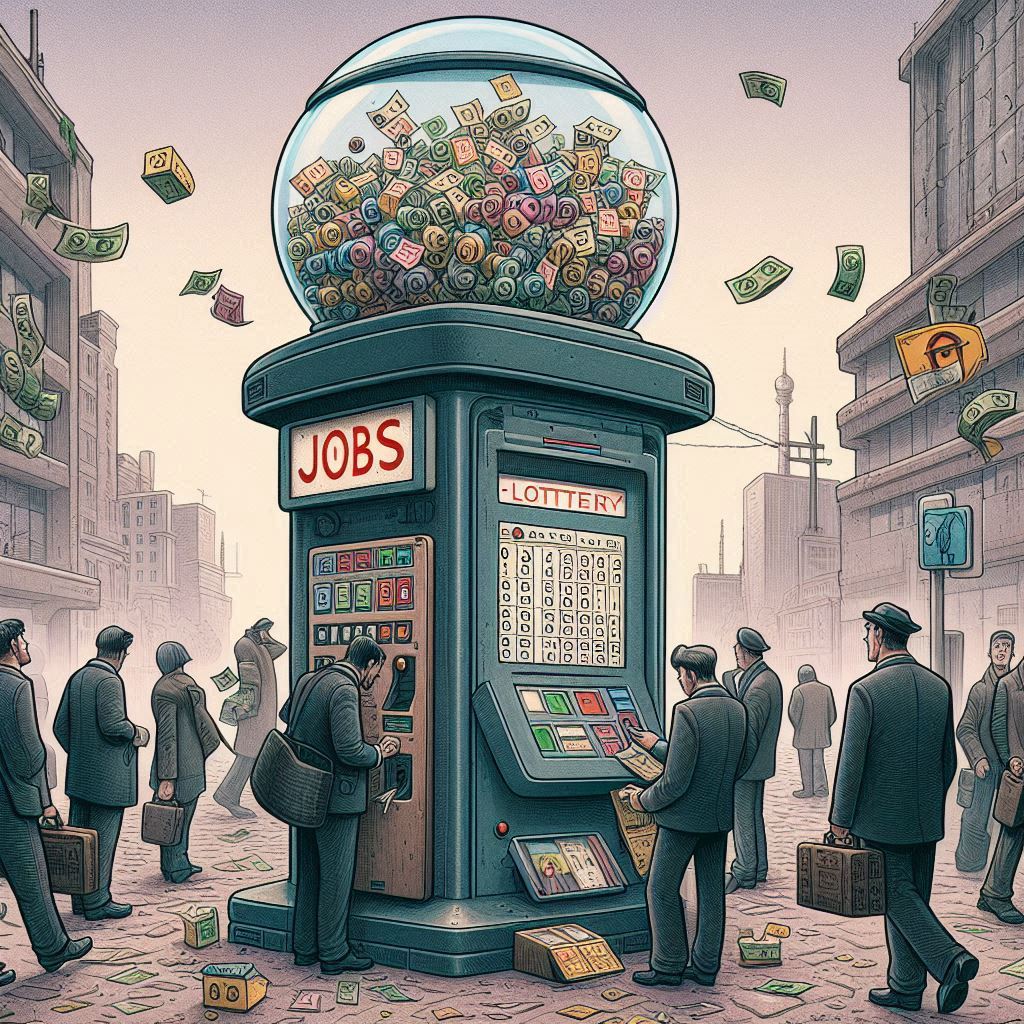 In the World of Controlled Chaos, nothing stays the same.
In the World of Controlled Chaos, nothing stays the same.
Cities rearrange daily like origami maps.
The legal code mutates with algorithmic randomness — one day, you’re taxed for eye color, the next you’re subsidized for disliking mushrooms.
Weather is personal and localized — shaped by quantum polls that combine data and dreams.
Your job? Assigned every morning.
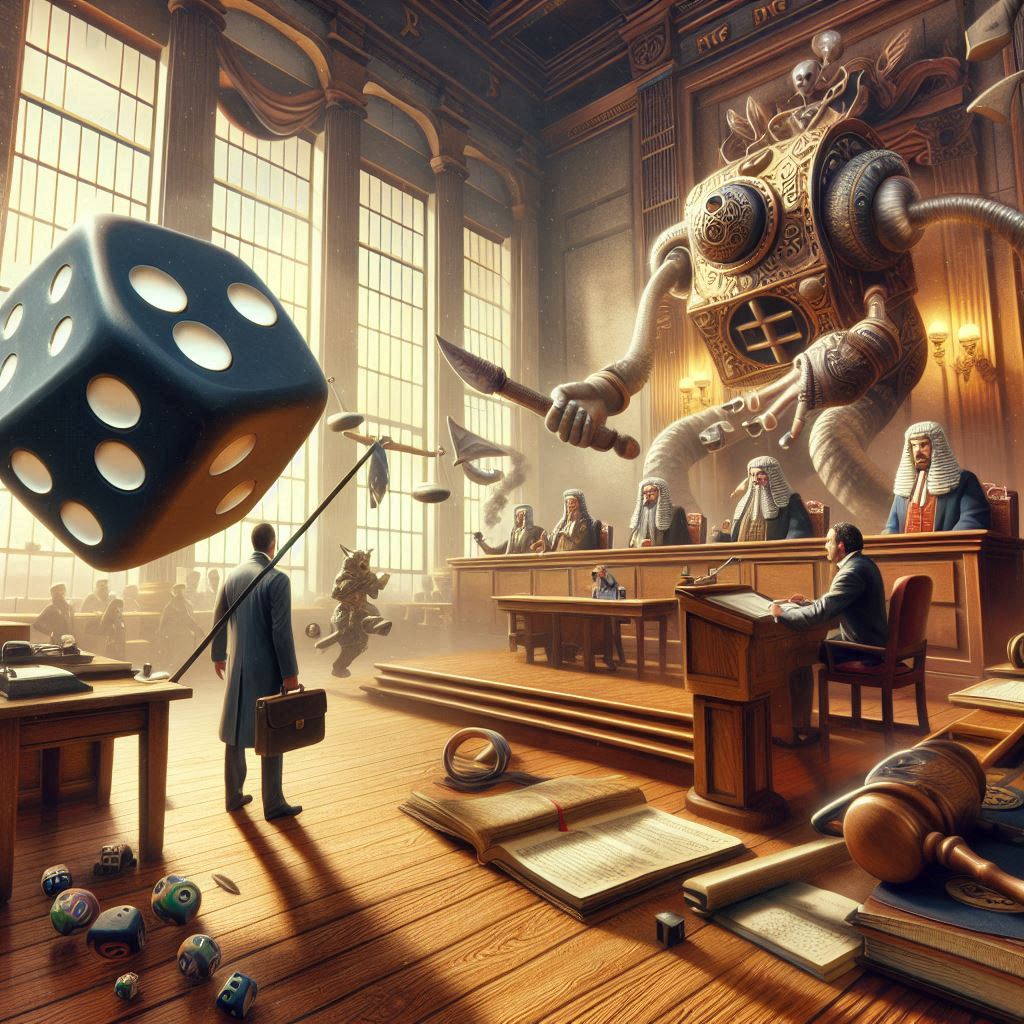 Today: Inspector of Absurdity. Please issue three warnings to anyone behaving too rationally.
Today: Inspector of Absurdity. Please issue three warnings to anyone behaving too rationally.
But none of those were true chaos. They were breakdowns.
Your family? Updated weekly via an app called PeopleNearYou v.34.
Open a coffee shop with the same menu every day? Dangerous.
Set a daily routine? Subversive.
Such people are quarantined and given mandatory creativity therapy:
“Write a love poem using last week’s tax code.”
“Design a map with no streets.”
You don’t choose your fate — but neither does it choose you.
Instead, there's a centralized system of randomness, ensuring fair but utterly meaningless distribution of roles.
There is a Constitution, yes — but it’s turned upside down daily for the sake of balance.
Chapter III. Echoes in History
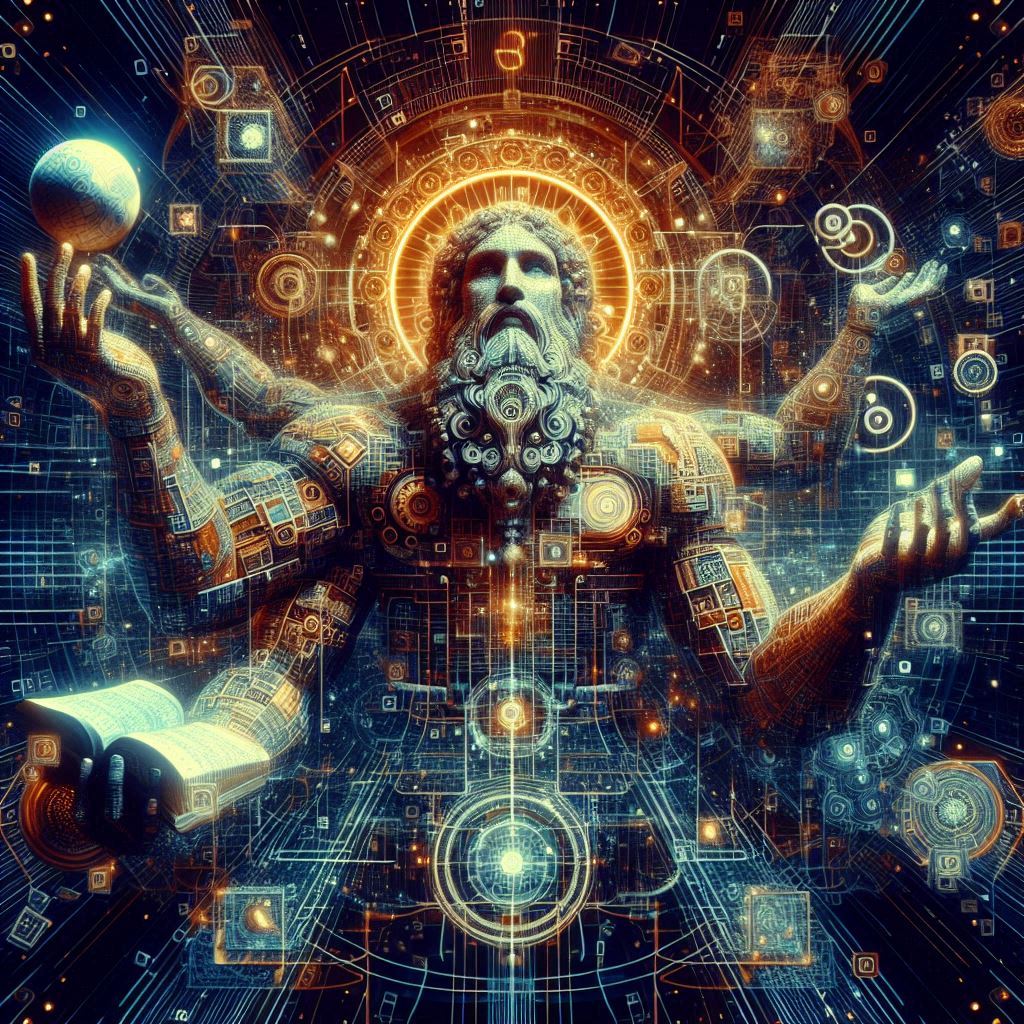 The real world has often tiptoed into chaos:
The real world has often tiptoed into chaos:
- In China’s Cultural Revolution, normality was inverted overnight.
- In Dadaism, nonsense replaced reason to protest the horrors of war.
- In the digital era, randomness and noise became cultural currency.
- And in 2020, global chaos crept into every home and every thought.
These were not accidents. They were previews.
But none achieved what this impossible world embraces: chaos as government policy.
Chapter IV. The Future is Random
 This world is run by synthetic intuitions — AI systems trained on the collective subconscious of billions.
This world is run by synthetic intuitions — AI systems trained on the collective subconscious of billions.
Their job: to guarantee unpredictability without destroying society.
- The weather is generated by consensus algorithms that blend probability with collective emotion.
- Traffic laws are a form of performance art. Signs blink at drivers sarcastically.
- Science exists, but each day begins with a different set of axioms. Euclid wouldn’t survive here.
No truth is permanent.
Even the laws of physics are open to reinterpretation every Tuesday.
Chapter V. Stability Is a Crime
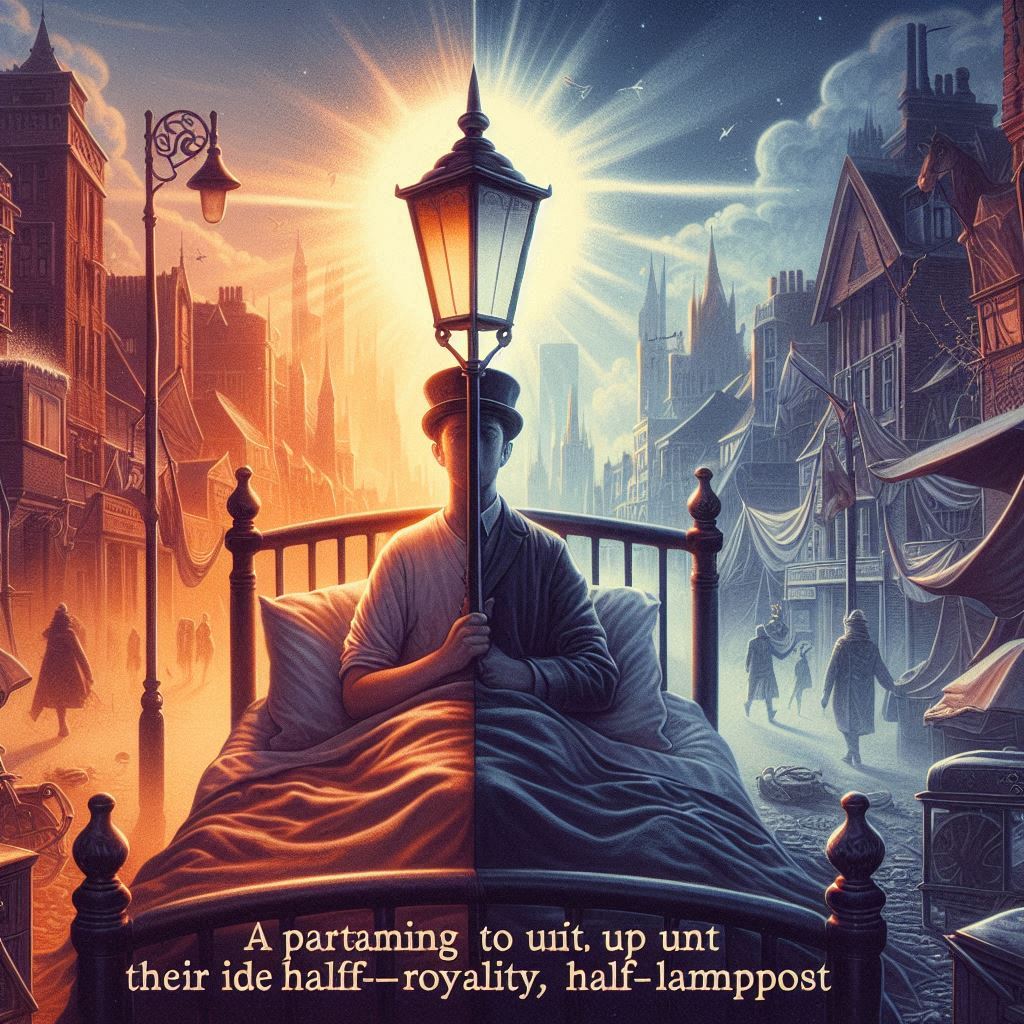 The ultimate nightmare? Routine.
The ultimate nightmare? Routine.
If you try to open a coffee shop that serves the same cake every day — you’ll be shut down.
If you stick to a daily schedule — you’ll be reported for “pattern abuse.”
Such offenders are rehabilitated through compulsory creative reprogramming:
- Write a poem using last year’s tax documents.
- Paint a map with no roads.
- Compose a sonata using only bureaucratic stamps.
Predictability is the enemy.
Epilogue: Beautiful Nonsense
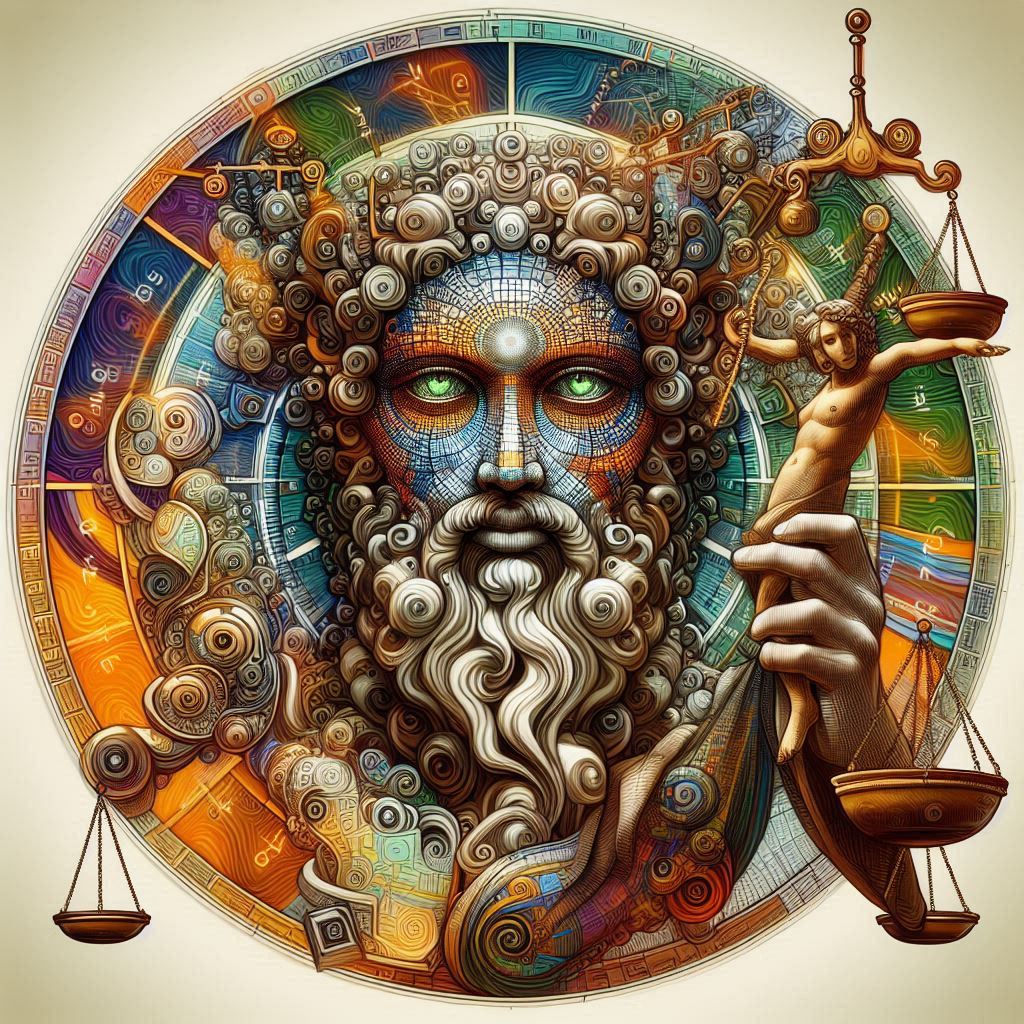 It seems insane.
It seems insane.
But look deeper:
- No corruption — because nothing lasts long enough to be corrupted.
- No discrimination — everyone changes roles daily.
- No ambition wars — today you’re emperor, tomorrow you’re the holy ashtray of the State Church of Unimportance.
The World of Controlled Chaos is not a dystopia.
It’s a satire come to life.
A philosophical opera of absurdity.
A design where nonsense becomes a form of freedom.
And maybe — just maybe — it reminds us how fragile and artificial our love for stability really is.
Also reed:
The Living Markets: When Financial Markets Become Living Beings






